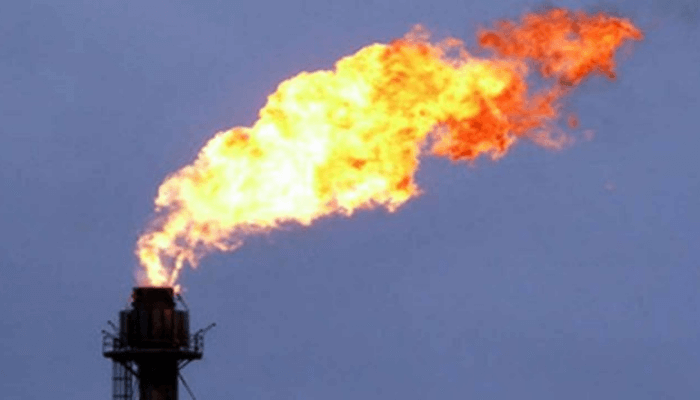Pure gasoline estimated at N696 billion and able to powering tens of millions of households was flared in Nigeria throughout the first 11 months of this yr, in line with BusinessDay findings.
Knowledge obtained from the Nigeria Fuel Flare Tracker, a satellite-based expertise, created by the Nationwide Oil Spill Detection and Response Company (NOSDRA), confirmed the nation flared about 241.1 billion commonplace cubic ft of gasoline value $843 million (N696 billion utilizing an alternate price of N824/$) from January to November.
Trade specialists say the quantity of gasoline flared can generate megawatts of electrical energy that may energy tens of millions of households. In accordance with the USA Power Info Affiliation, one megawatt (MW) of electrical energy can meet the wants of 1,000 households.
Whole electrical energy era in Africa’s most populous nation stood at 4,212.86MW as of 6am on Wednesday, in comparison with an put in capability of 13,014.14MW, information from the Nigerian Electrical energy System Operator reveals.
As of 2021, over 85 million Nigerians lacked entry to electrical energy, in line with the World Financial institution.
“The demand or consumption price for electrical energy in a median or typical Nigerian dwelling is dependent upon a number of components, one in all which is the situation, both rural or city space,” mentioned Ayodele Oni, an vitality professional and associate at Bloomfield Legislation Observe.
Consultants have confused the necessity for gasoline commercialisation, correct gasoline regulation, the event of floating Liquefied Pure Fuel, and modification of the Petroleum Trade Act (PIA).
“The optimum technique can be a sensible push for gasoline commercialisation, supported by a strong infrastructure community. A portion of the Liquefied Petroleum Fuel (LPG) consumed regionally is imported; though the precise proportion is unsure,” Preye David Orodu, lead engineer at KEOT Synergy, mentioned.
“By selling gasoline commercialisation, we will entice funding, thereby lessening our reliance on imports,” he mentioned. “The commercialisation course of ought to stimulate funding in well-designed, environment friendly modular processing amenities.”
In accordance with Orodu, these amenities would seize flared gasoline at nicely websites, creating worthwhile clusters each at nicely websites and stream stations. Success hinges on setting applicable gasoline pricing for native consumption and capitalising on further advantages all through the worth chain past LPG, he mentioned.
Nigeria misplaced $22.9 billion to gasoline flaring in 10 years, from 2011 to 2021, in line with NOSDRA.
In July, the Home of Representatives vowed to get well the sum of over $9 billion in gasoline flaring fines imposed by the Federal Authorities on erring native and overseas corporations working within the 0il and gasoline business.
Ahmed Munir, chairman of the ad-hoc committee investigating gasoline flaring, vowed that the tenth Nationwide Meeting will do every little thing inside its powers to make sure the restoration of all unpaid levies in addition to compliance with extant legislations and laws.
For Kelvin Emmanuel, vitality sector professional and co-founder/CEO at Dairy Hills, to commercialise the gasoline being flared, there’s a want for the deregulation of gasoline costs.
“The explanation that is vital is as a result of if the price of gasoline per commonplace cubic ft is decrease than the price of penalty for flaring, the operators will reject re-injection and go for the fines,” he mentioned.
He really useful “the event of floating liquefied pure gasoline (FLNG) vessels to minimise the price of constructing commonplace trains, cut back the incidence of vandalisation that occurs from sizzling stress tapping in addition to allow the simple offtake of related gasoline from well-heads to remove the necessity for flaring or rejection of re-injection”.
Emmanuel mentioned the federal government must amend the PIA to supply readability to operators when it comes to rights to related gasoline within the deep offshore between the three way partnership that kinds NLNG and the three way partnership that’s forming rising FLNG vessels.
“The NMDPRA (Nigerian Midstream and Downstream Petroleum Regulatory Authority) additionally wants to provide functionality ratios to indicate the presidency the crucial of deregulating gasoline costs, which is able to incentivise the availability chain to spend money on infrastructure to lure, pipe, transport, deal with, separate, course of, measure and ship gasoline to producing corporations midstream,” he mentioned.


